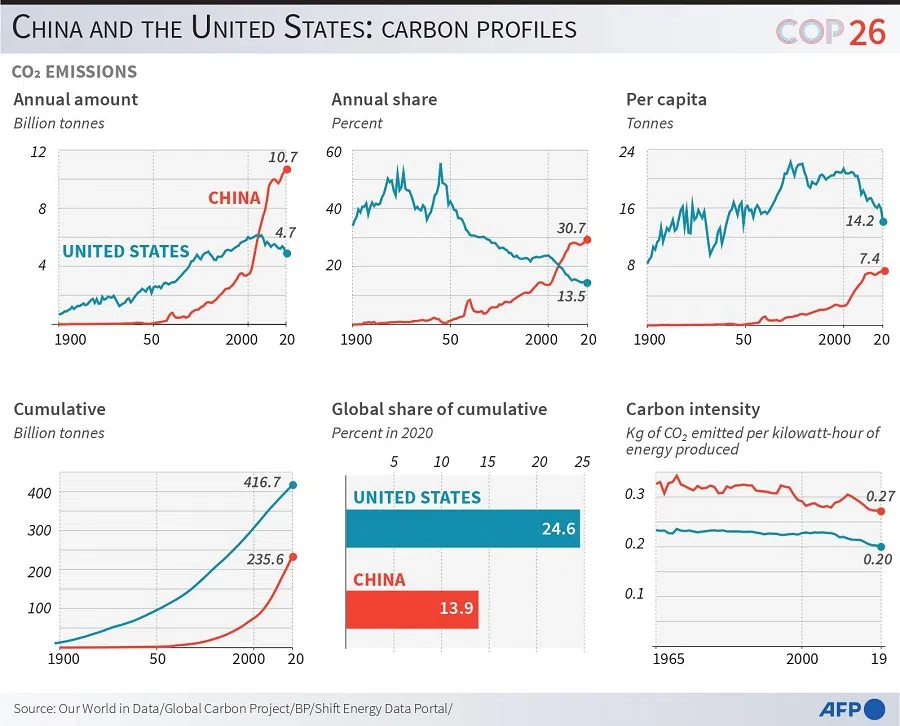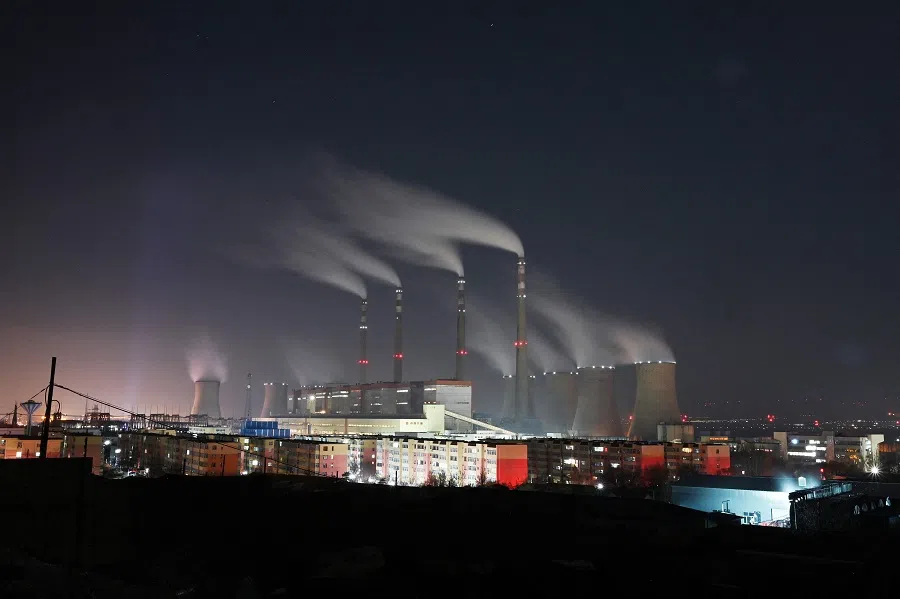Will China-US cooperation go beyond climate change?
Chen Gang sees that rather than an end in itself, climate change can be a springboard for China and the US to deepen cooperation in other areas. This is by virtue of the fact that climate change is often intertwined with issues relating to the economy, trade and foreign policy. Facets of climate change cooperation will have spillover effects that could lead to tariff reductions, investments and greater technology collaborations.

Since Biden defeated Trump and was elected president of the US, China-US relations have been rational and stable despite some setbacks. Although both sides have not agreed on the remaining trade issues, they have had close consultations and reached a historic agreement on the existential issue of global climate change.
At the COP26 UN Climate Change Conference in Glasgow, China and the US agreed to boost climate and energy cooperation in the next ten years, bringing new hope to the international community in achieving the goals of the Paris Agreement. As China and the US are still at loggerheads in areas such as geopolitics, human rights and security, observers generally believe that their cooperation will be limited to climate change. On closer analysis, however, it is possible that climate change may be an important breakthrough to extend the cooperation and understanding between the two nations to other areas.
Since climate change is related to global warming caused by greenhouse gas emissions from human activities, it also concerns environmental protection as well as energy and the economy. It is also a political issue associated with national security, national development strategy and international relations, and can be described as a systemic and postmodern problem.
Climate change cooperation can mitigate effects of tariff war
To work together to tackle this problem, the two nations must cooperate in energy saving and emissions reduction technologies, traditional and new energy sources, economic development strategies, industrial planning, carbon trading, carbon capture and afforestation, and in third-party overseas markets. The scope of cooperation in these areas will far exceed that of the current friction in trade.

Relative to the scope of possible cooperation resulting from climate change, the impacts of the China-US tariff war are local and mostly limited to the traditional areas of the economy and trade. Besides, the tariffs imposed by both sides have not greatly affected the volume of bilateral trade.
China, the world's largest energy consumer, is gradually reducing its reliance on coal for energy so it could very significantly import energy products from the US, which will help to enhance China-US trade and reduce the US trade deficit with China. In time, the long-term impacts of the China-US joint declaration on climate cooperation will gradually mitigate the effects of the tariff war.
...collaboration in climate change technology is likely to be an important breakthrough to overcome the tech bans.
Spillover benefits to tech cooperation
An important point of contention that affects the bilateral relations is the tech bans on China by the US, and its negative impacts are way beyond those of the tariff war. However, the China-US climate cooperation may result in technology collaboration and transfer in areas such as new energy, traditional energy transformation, environmental protection and emission reduction.
Technology collaboration in these new frontiers cannot happen overnight under the current challenging political circumstances. However, in view of the joint declaration on climate cooperation and the long-term collaboration experience in new energy vehicles and renewable energy, collaboration in climate change technology is likely to be an important breakthrough to overcome the tech bans.

It is difficult for the two nations to completely isolate climate and energy cooperation from the economy, technology and foreign policy. This is because of the extensive nature of climate change and the spillover effects of the spirit of cooperation and exchange. When one window of opportunity opens, others will follow. Almost at the same time that China and the US issued the joint declaration on climate cooperation, Presidents Xi Jinping and Biden held a virtual summit which included Liu He, Vice-Premier of the State Council of China, and Janet Yellen, US Secretary of the Treasury, who are directly responsible for the economic, trade and tariff negotiations. This shows the willingness of both governments to extend the established consensus on climate change to other areas including the economy and trade.
In the video call between Liu and Yellen prior to this, although no agreement was reached on reducing tariffs, the basis for further consultation has been established. US Trade Representative Katherine Tai has also indicated that the Biden administration does not seek to aggravate the trade tensions with China.
Cooperation needed on global supply chains and other interrelated issues
More importantly, both nations are currently confronted by the challenges of a new wave of pandemic, global supply chain tensions and energy crisis, which require a certain degree of cooperation between the two largest economies to tide over together. Otherwise, they may find themselves in yet another difficult predicament, as a refusal to cooperate may result in a lose-lose situation.
Currently, geopolitical breakthroughs appear unlikely but both sides may find common ground on issues such as tariff reduction, increased investment and market access.

Take the global supply chain problem for example. If it worsens in the current year-end shopping season, it will not only affect people's daily needs but also possibly aggravate inflation and trigger a new financial crisis. Regarding energy, the US will also need the cooperation of China, the world's largest energy consumer and producer, to stabilise the price and global supply of energy. Failing to do so will increase energy prices, which will in turn disrupt the global economic order and lead to an economic crisis.
Since Biden took office, the US and China have been constantly ascertaining each other's red lines so as to gradually ease bilateral relations and enhance consensus on the basis of not crossing these red lines. Since both sides have broken the deadlock to reach an agreement on climate change, it is highly possible that they will seek new consensus in the economy, trade and other areas.
Currently, geopolitical breakthroughs appear unlikely but both sides may find common ground on issues such as tariff reduction, increased investment and market access.
Related: US and China not perceived as climate change leaders in Southeast Asia | Net-zero CO2 emissions before 2060: Is China's climate goal too ambitious? | Can China keep its climate change promises? | US-China competition in climate cooperation a good thing for Southeast Asia | If Xi Jinping and Joe Biden meet this week, it won't be just about climate change | China and US could work on building clean and green BRI and Build Back Better World (B3W) | What can China and the US cooperate on now?


![[Big read] When the Arctic opens, what happens to Singapore?](https://cassette.sphdigital.com.sg/image/thinkchina/da65edebca34645c711c55e83e9877109b3c53847ebb1305573974651df1d13a)


![[Video] George Yeo: America’s deep pain — and why China won’t colonise](https://cassette.sphdigital.com.sg/image/thinkchina/15083e45d96c12390bdea6af2daf19fd9fcd875aa44a0f92796f34e3dad561cc)